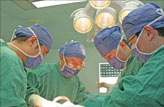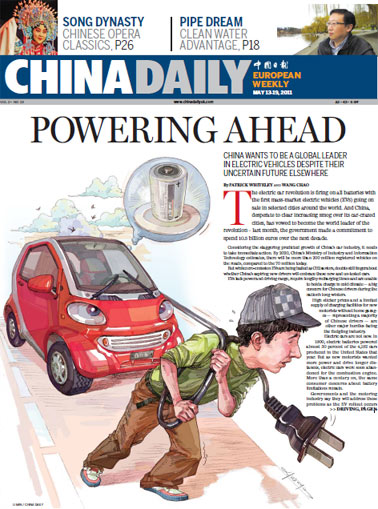Society
HIV/AIDS sufferers rejected by hospitals
Updated: 2011-05-18 07:22
By Shan Juan and Li Yao (China Daily)
Medical treatment denied because of fear, ignorance, says UN report
BEIJING - People living with HIV and AIDS in China are routinely denied treatment in mainstream hospitals and face widespread medical discrimination due to fear and ignorance about the disease, according to a study released on Tuesday by the United Nations' International Labour Organization (ILO).
Healthcare providers deny treatment for sufferers or transfer them to designated infectious disease hospitals, falsely citing the protection of other patients or using a lack of resources as an excuse, the report said.
| ||||
The study, conducted by the ILO and the National Center for AIDS and Sexually Transmitted Diseases Control and Prevention, was based on interviews with 103 people living with HIV and 23 healthcare workers from five provinces.
Meng Lin, the coordinator of the secretariat of the China Alliance of People Living with HIV/AIDS, said denial of surgery was one of the most pressing issues facing HIV-infected people.
They were also denied medical treatment for simpler procedures such as hemorrhoids and cleaning and stitching of wounds.
Hospitals sometimes tried to cover up the real reason for their refusal or actually accepted HIV-positive patients in the belief that the resulting media coverage would boost their image and allow them to charge excessive medical bills, he added.
"The existence of designated infectious disease hospitals becomes a convenient excuse for general hospitals to turn sufferers away," he said.
Meng also said that "unnecessary" HIV testing before surgery had left many sufferers feeling exposed and reduced their chances of getting proper medical services.
A survey led by Lu Fan, director of policy research and information at the national AIDS center, the organization that helped the ILO with the report, found 12.1 percent of the HIV-infected interviewees had experienced denial of medical treatment at least once.
At the news conference to unveil the report, an HIV-positive patient who declined to be named, said that he was repeatedly denied medical treatment for a back problem in hospitals in Tianjin and Beijing.
One doctor said that surgery was impossible as others could get infected, the patient said.
"At another hospital ... the doctor told me: 'I sympathize with your suffering but because of your status, I dare not operate'."
The patient, a farmer from Tianjin, added that he lost his job in a steel firm after his boss discovered he was HIV-positive. "I've visited many other hospitals and listened to all the excuses, especially lack of equipment.
"I have sleeping pills ready and will swallow them when I can no longer take the discrimination," he said.
Another HIV-positive man from Hebei province, who contracted the virus through a blood transfusion, recalled how hospital workers insisted on discharging him quickly after they found out he had HIV.
"I talked to them later ... and their worry is that when a HIV-positive person is treated in a rural hospital word gets around and people stop visiting and this results in a loss of revenue," he said.
Wang Ning, deputy director at the national AIDS center, said patients could file official complaints to their local health administration if they were denied treatment due to discrimination.
But "few dare to do so for fear of exposure and social discrimination", said an AIDS patient called Laoji in Beijing.
Zhang Ke, deputy director of the infectious disease department at Beijing YouAn Hospital, said it is a designated hospital for people with HIV but is limited in terms of capacity and the treatment it can provide.
The policy that people with HIV/AIDS should only be treated in designated hospitals is a root cause of discrimination, he said.
Richard Howard, ILO senior regional advisor on HIV/AIDS, said many countries in the Asia and Pacific region face the same issue of discrimination.
China introduced a regulation in 2005 to guarantee the right of people with HIV to healthcare. The State Council issued a further notice in December 2010 to combat discrimination.
Statistics from the Ministry of Health showed that 932 Chinese people died of AIDS in April.
China had 740,000 people infected with HIV and 105,000 AIDS patients in 2009, according to the latest estimates jointly released in 2010 by the ministry and the World Health Organization.
Reuters and Cang Wei contributed to this story.
E-paper

Green works
Wuxi becomes 'test case' for facing country's environmental challenges
The global rise of Chinese brands
China-EU trade on solid ground
ZTE banks on innovation
Specials

The song dynasty
There are MORE THAN 300 types of Chinese operas but two POPULAR varieties are major standouts

Cut above the rest
One of the world's oldest surgeons has performed more than 14,000 operations

From the ground up
Architect of Guangzhou Opera House has many projects under way, including 2012 Olympics.




